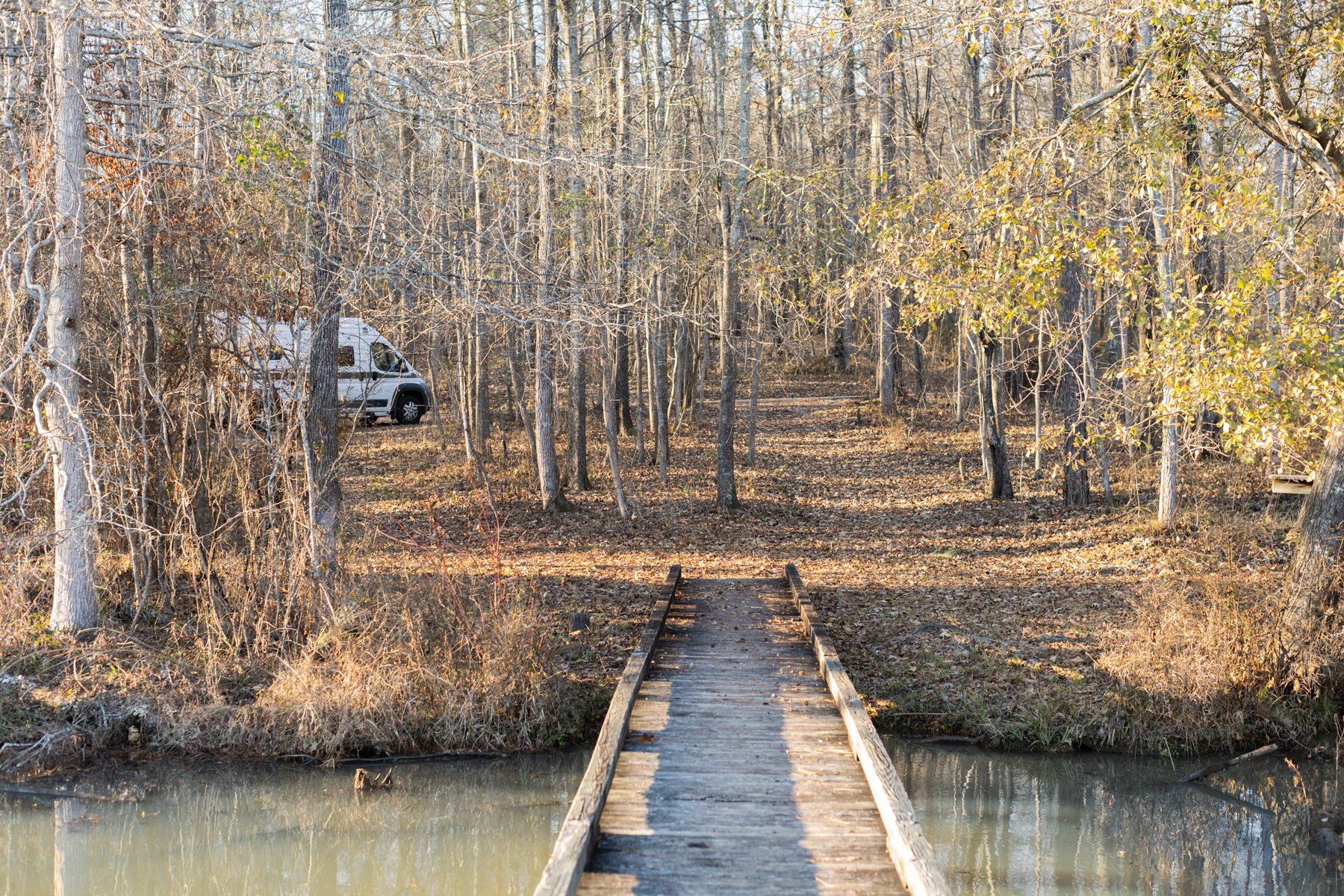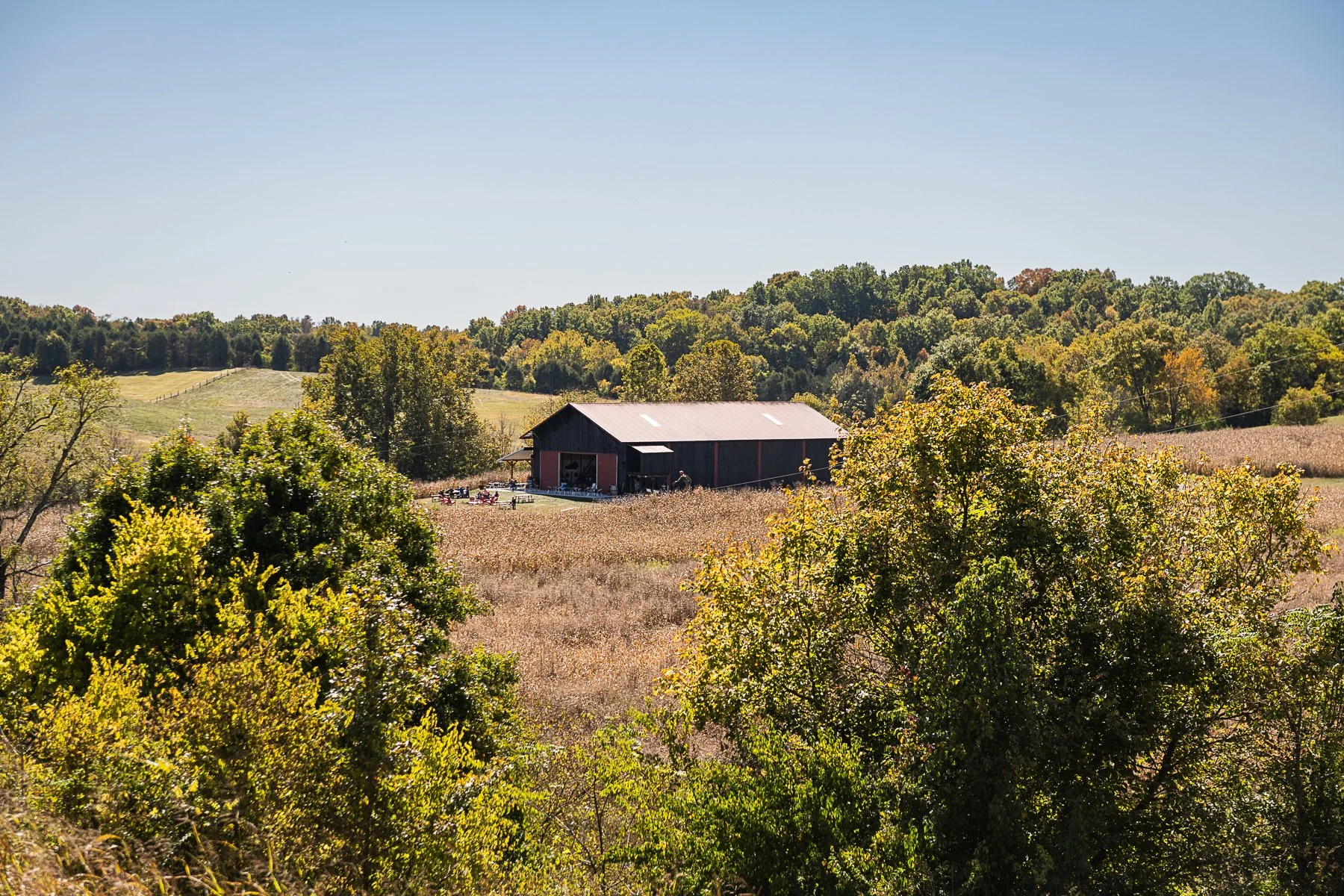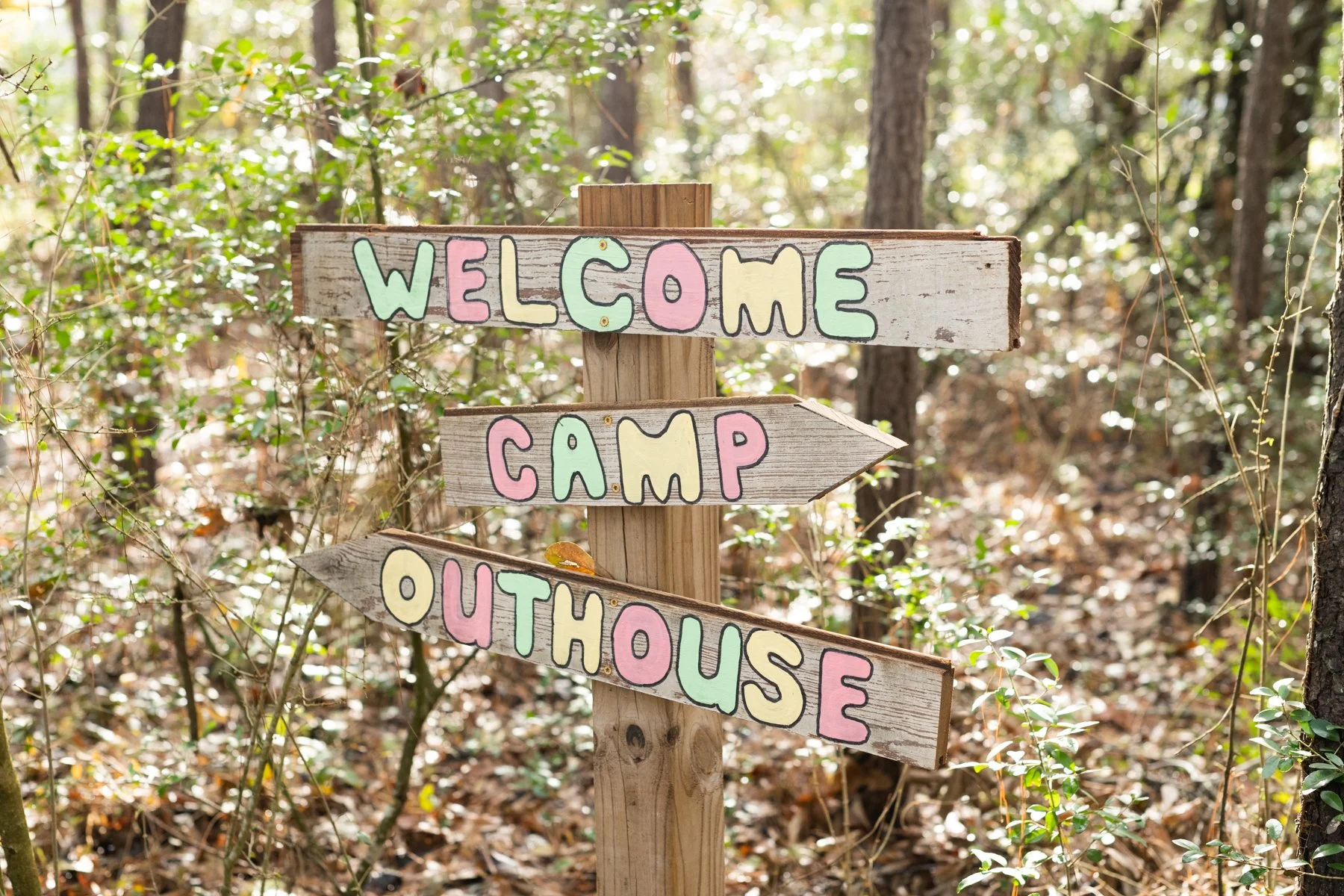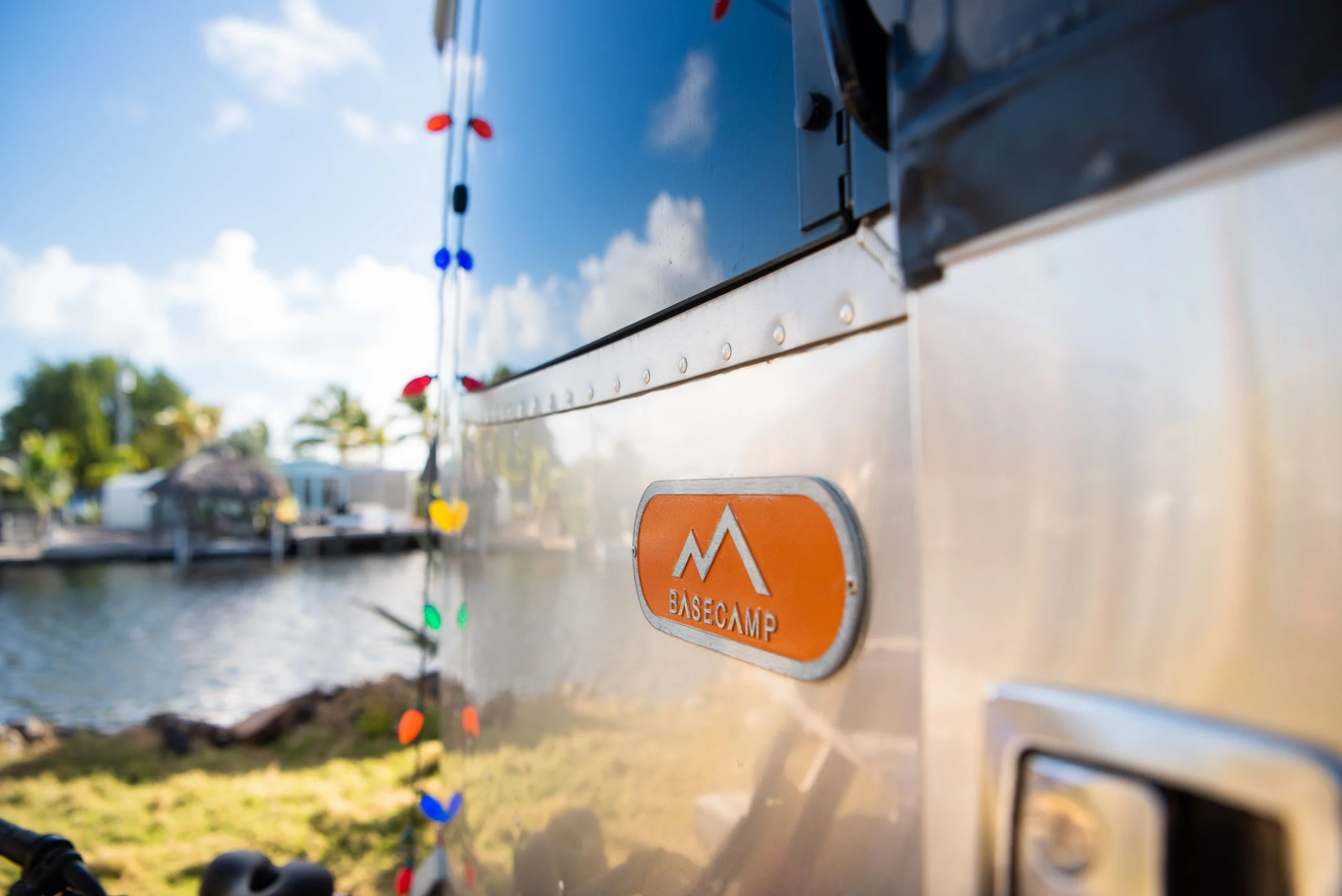Where to Stay Overnight in an RV or Camper: Pros and Cons
Are you wondering where to park your camper overnight? Are you not sure how to find the best overnight camper spots? Read on for the pros and cons of different camper van campsite options.
This post contains affiliate links. As always, all photographs are copyrighted Reese Moore Photography unless otherwise stated and cannot be used without express permission.
Are you wondering how to find the best overnight camper van sites? (Pictured: Lake Sinclair Recreation Area)
One of the most common questions I get about our van lifestyle is, “Where do you park your camper overnight?” and “How do you find places to stay in the camper?”
While I never set out to be a walking millennial stereotype, somehow, we’ve spent a considerable amount of time dabbling in van life over the last several years. Thanks to COVID, we actually did our honeymoon in a rented Casita camper. We then went on to purchase an Airstream Basecamp, and today we’re currently burning rubber through the great state of Texas in a Hymer Aktiv on our way to tonight’s campsite. What better time to hammer out some answers to this frequent question?!
There’s a lot to consider when picking a campsite, from electric and sewer hookups to price and amenities to proximity to creepy neighbors. (We just stayed at a campsite where our neighbor was traveling with FIVE cats that we could see.)
Your needs will be specific to your RV or camper, but I hope you learn from our experiences… and CATastrophic mistakes!
State parks are a great option for where to stay overnight in an RV or camper. (Pictured: FDR State Park)
How to Pick an RV Campsite: Pros and Cons to Consider
State Parks
Many (but not all) state parks offer a solid selection of campsites with amenities, making them a great place to stop on the road.
Pros: Generally speaking, you have a good chance of power and water hookups at state parks with RV camping, and there’s usually a bathhouse with showers. The campsites are often more spacious than your average RV park, and some offer scenic views of lakes or overlooks. They usually have a grill, fire pit, and picnic table to enhance your camping experience.
You’ll also be close to hiking, walking trails, and other park activities, and the campsites are affordable (usually around $35). Finally, you pretty much know what to expect with a state park campsite (some people may find this to be a negative).
Cons: State parks book up quickly, especially the good ones, and many require a 2-3 night minimum stay. You’ll need to plan weeks or even months in advance. If you’re staying on a weekend during your area’s tourist season, expect the campground to be very full.
Harvest Hosts are a fun, hip option for parking overnight in an RV or camper. (Pictured: Harvest Host site view at Three Boys Farm Distillery)
Harvest Hosts
Harvest Hosts is a members-only platform that enables van lifers to stay at wineries, breweries, farms, distilleries, and historic sites.
Pros: Plainly stated, it just doesn’t get cooler than sleeping at your favorite brewery (without someone calling the cops). Harvest Hosts just have that hip vibe, and you certainly don’t have to worry about drinking and driving when you’re sleeping on-site.
You’ll often have the whole place to yourself after the business closes, and if you use your membership more than once in a year, it ends up being pretty affordable. (There’s a reasonable annual fee, and beyond that, they just ask that you support the business at which you park.)
Plus, since you’re staying at a reputable business, the grounds are usually very well maintained.
Cons: Harvest Hosts generally do not offer hookups or bathrooms. While you will have a lot of space, you likely won’t have privacy until after the business closes.
Some Harvest Hosts (mostly farms) still allow you to have an evening fire but don’t count on it.
Finally, you have to request your stay at least 24 hours in advance, and you can only stay for 24 hours at a time unless you arrange otherwise with the host.
The Hipcamp app is like Airbnb for overnight camping. (Pictured: Hipcamp in Houston, TX)
Hipcamp
There are a lot of apps out there to help you figure out where to stay overnight in an RV or camper, but Hipcamp is, hands down, the one we use the most. It’s like Airbnb, but for parking your RV!
Pros: Hipcamp offers a wide range of places to stay, so the world is really your oyster. Host sites range from dreamy meadows on the river to quirky homesteads to questionable empty lots. Some have hookups, and some don’t, so you can shop for a site you’ll be most comfortable with. Most sites are affordable and can be booked last minute.
We’ve mainly stayed on small farms and homesteads, and most of them have been both lovely and private, and our hosts have made an effort to make their campsites both charming and comfortable through outdoor showers, fire pits, and more. Some also offer add-on experiences like farm tours, opportunities to feed livestock, and farm fresh eggs.
Cons: The Hipcamps we’ve stayed in have all be fun, but not all sites are created equal. We once stayed on an exotic animal rescue that neglected to mention the majority of the animals weren’t contained, and we got straight up charged by an emu and some sort of exotic bull. You also should be prepared with your own water, power, and bathing solutions.
Pros and cons of RV parks. (Pictured: RV campsite in Key Largo)
RV Parks
RV parks abound in most places, and they’re usually equipped for most RVs, vans, and campers.
Pros: If you’re looking for an affordable, longer-term place to park your van with easy amenities, an RV park may be your ideal spot. RV parks come with hookups, trash dumps, sewer dumps, bathhouses, and amenities, and many are close to fun tourist attractions. The price varies wildly by location, as does the quality of the campsite, but they’re usually worth checking out - especially in the Florida Keys. They usually come with picnic tables and fire pits.
Cons: Expect to be within arm's length of your neighbors at most RV parks, and realize that this may be their permanent home (like, they may have poured concrete and built an entire immovable deck).
The vibe can vary widely between RV parks because of the nature of the long-term residents, and the cleanliness of the bathhouses is also very unpredictable in my experience. (Read: RV parks can be sketchy, crowded, and sometimes filthy, so do your research.)
You should always book your site in advance.
Recreational Areas
Public recreational areas are land designated for public use, and some allow free or very affordable overnight RV and camper parking.
Pros: Especially in the off-season, these types of campgrounds can be a great low-cost, last-minute option. Many recreational areas offer some privacy and are nestled in natural settings with hiking, hunting, or swimming nearby. Recreational areas sometimes include picnic tables, grills, and fire pits, but they can also be a rustic clearing in the woods… and that’s it.
Cons: Recreational areas can be a bit like the Wild West. While some do have bathhouses and hookups, some are completely off the grid with no camp host or ranger presence. Because of this, you may wind up with a neighbor with 5 cats and another with a lawn of used mini-bottles (we just experienced this in Georgia) or a gross or unusable bathroom. Do a drive-through of the campsite before you commit to staying the weekend if you can.
Walmart, Lowe’s, and Cracker Barrel, allow camper and overnight RV parking.
Big Box Store Parking Lots
Some stores and restaurants, such as Walmart, Lowe’s, and Cracker Barrel, allow camper and overnight RV parking.
Pros: Since big box stores are prevalent in most medium-sized cities and towns, these camping spots are free, readily accessible, and don’t require a reservation, though you’re encouraged to give the manager a heads up.
Cons: There’s nothing like waking up in a concrete jungle of SUVs and shopping carts to light a fire for life on the open road. Don’t expect privacy or hookups, and remember you can’t set up camp next to your vehicle.
A number of apps can help you find overnight camping options. (Pictured: A friend’s homestead)
Additional Overnight Camper and RV Site Options
Apps to find spots abound, such as The Dyrt, Free Roam, or iOverlander. My husband and I somewhat disagree over which are the most useful, which is why they’re posted down here. We both agree that Hipcamp is the most solid, however, so it got its own section (see above).
You can also feel out communities for areas where it’s probably ok to discreetly park, but you’ll miss out on the camp feeling of having a fire, using an outdoor kitchen, and it being socially acceptable to watch the sunrise in your pajamas.
What are your favorite places to stay overnight in an RV or camper? Do you have campgrounds we need to check out? Leave ‘em in the comments below!





















